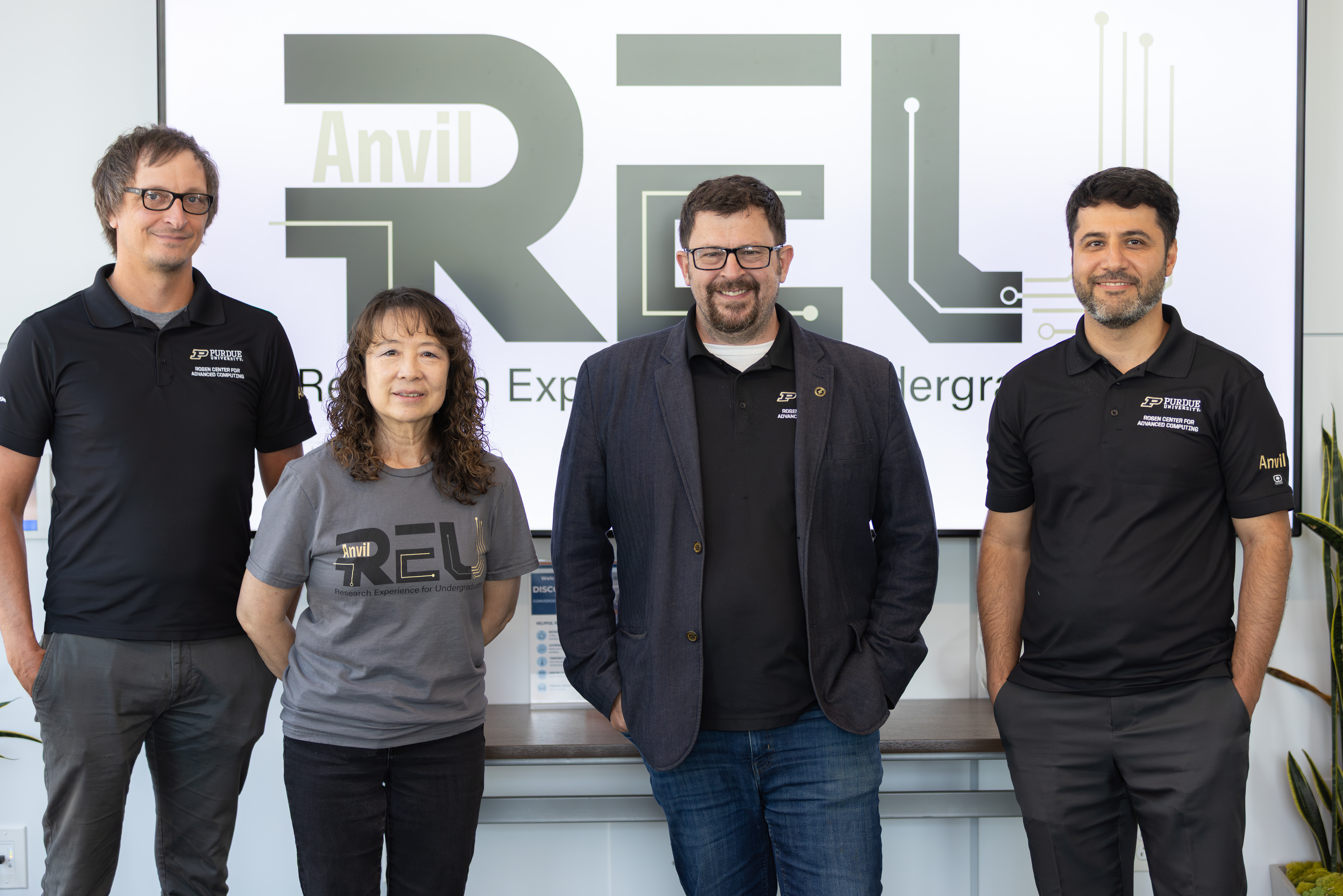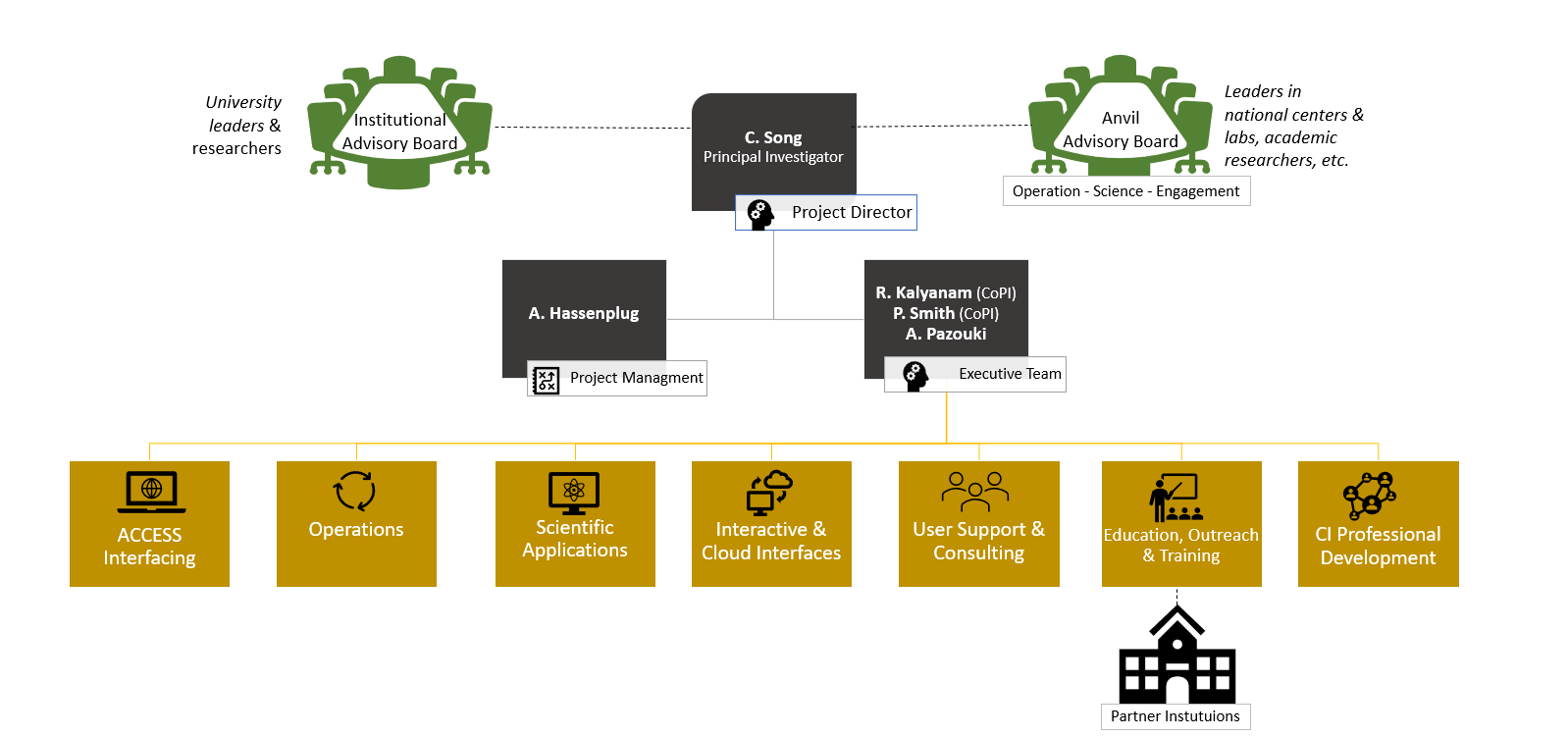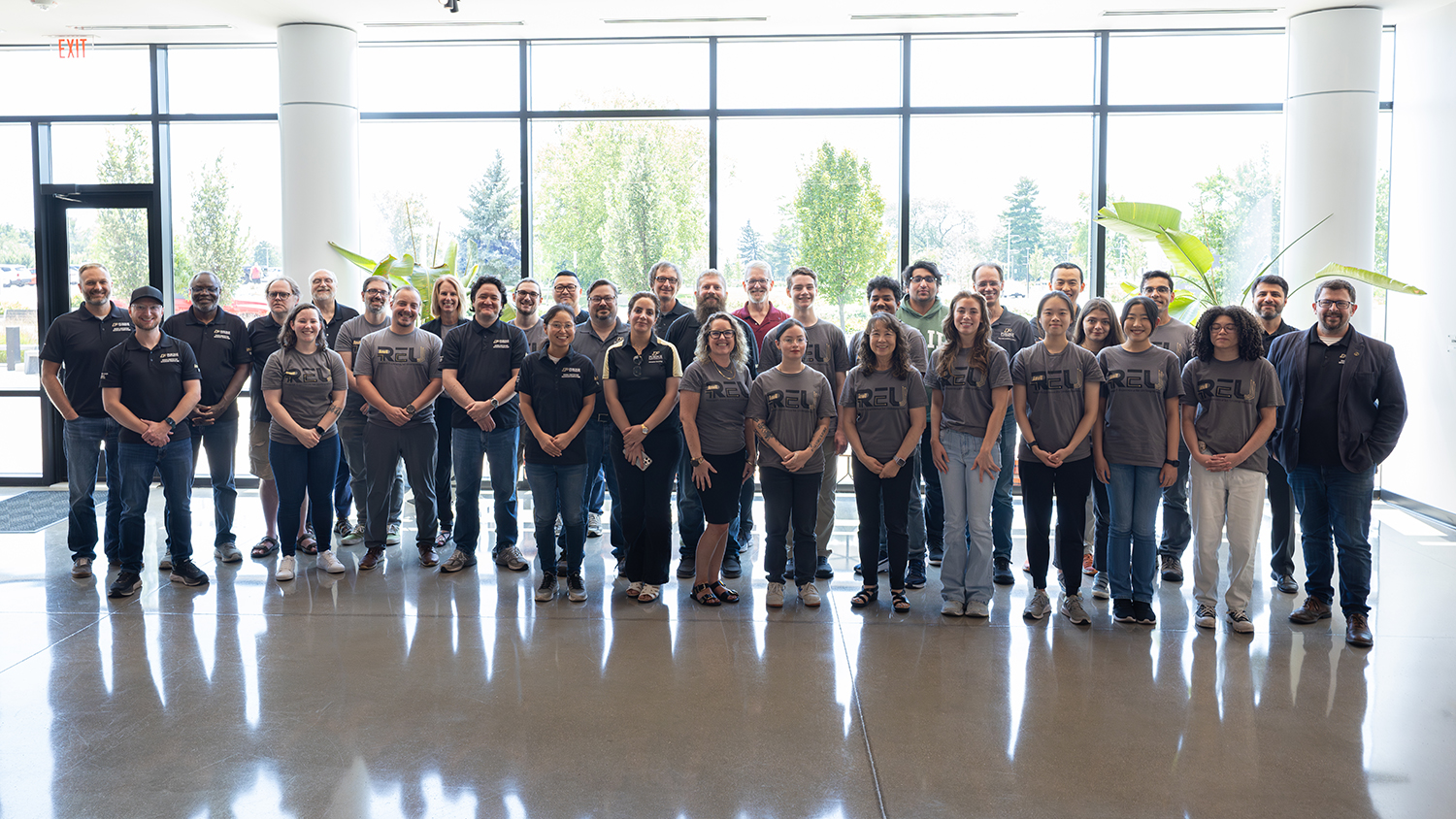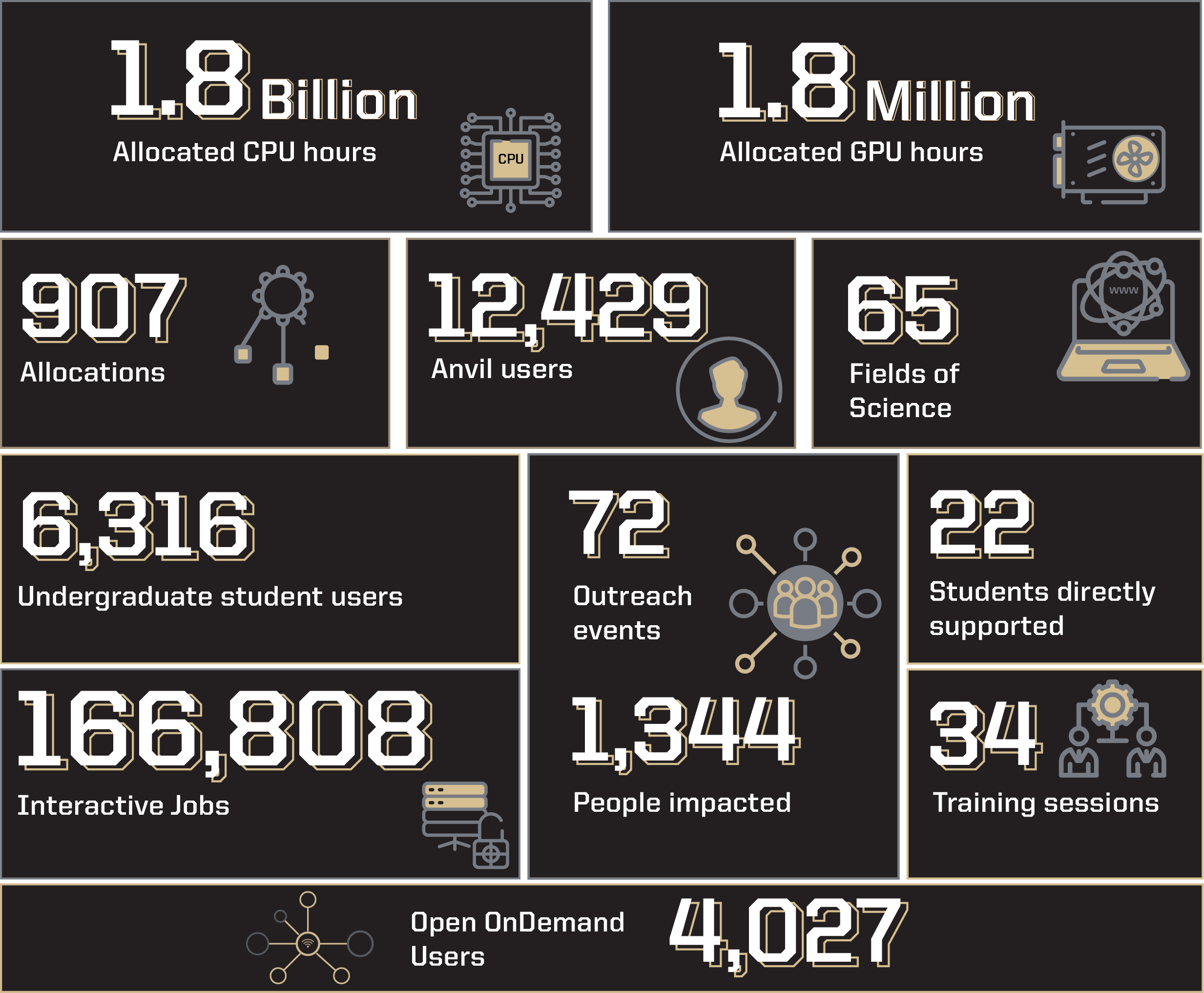Overview

Anvil is one of Purdue University’s most powerful supercomputers, providing researchers from diverse backgrounds with advanced computing capabilities. Built through a $10 million system acquisition grant from the National Science Foundation (NSF), Anvil supports scientific discovery by providing resources through the NSF’s Advanced Cyberinfrastructure Coordination Ecosystem: Services & Support (ACCESS), a program that serves tens of thousands of researchers across the United States. Purdue has proudly partnered with the NSF to deliver high-performance computing to researchers in need for over a decade. The Anvil supercomputer went into production in February of 2022 and will continue serving the research community through 2027. Additional funding from the NSF supports Anvil's operations and user support.
In 2024, Anvil was awarded a $4.9 million supplement to support the newly launched National Artificial Intelligence Research Resource (NAIRR) Pilot. This NSF supplement enabled Purdue to further expand Anvil’s graphics processing unit (GPU) compute capabilities to support AI, enhance high-performance object storage, and provide the operational support needed for users of the NAIRR Pilot and the ACCESS community.
Over the coming years, the Anvil supercomputer will enable significant discoveries across many areas of science and engineering. Anvil will also serve as an experiential learning laboratory for students to gain real-world experience using computing for their science, and for student interns to work with the Anvil team to innovate and enhance Anvil’s capabilities. Through the continued support of hands-on education, Purdue will be training the future cyberinfrastructure (CI) professionals and CI-savvy workforce. Learn more about Anvil's mission in the Anvil press release.
Anvil is funded under NSF award number 2005632. Carol Song is the principal investigator and project director. Preston Smith, Executive Director of Research Computing, Arman Pazouki, Director Scientific Applications, and Erik Gough, Senior Research Scientist, are all co-PIs on the project.
Not sure how you could use Anvil or if Anvil is right for you? To learn more about High Performance Computing (HPC), access Classroom Instruction or Learn how to get started!
Anvil at A Glance
Organizational Chart

All Anvil Team

Workshops & Training Events
NSF ACCESS REGIONAL AI WORKSHOP
Annually
RCAC with funding from NSF ACCESS is hosting an inaugural annual regional AI workshop to support researchers in leveraging AI technologies on Anvil.
Learn More
The Build
Documentation
Outreach Resource Person

How to Cite Anvil
To acknowledge the use of Anvil for papers, presentations, or other publications, please use the following citation:
X. Carol Song, Preston Smith, Rajesh Kalyanam, Xiao Zhu, Eric Adams, Kevin Colby, Patrick Finnegan, Erik Gough, Elizabett Hillery, Rick Irvine, Amiya Maji, and Jason St. John. 2022. Anvil - System Architecture and Experiences from Deployment and Early User Operations. In Practice and Experience in Advanced Research Computing (PEARC '22). Association for Computing Machinery, New York, NY, USA, Article 23, 1–9. https://doi.org/10.1145/3491418.3530766
Contact Us
For user support please submit a ticket at Help Desk, by selecting the appropriate Anvil resource to have it routed to us.
Anvil is supported by the National Science Foundation under Grant No. 2005632.


